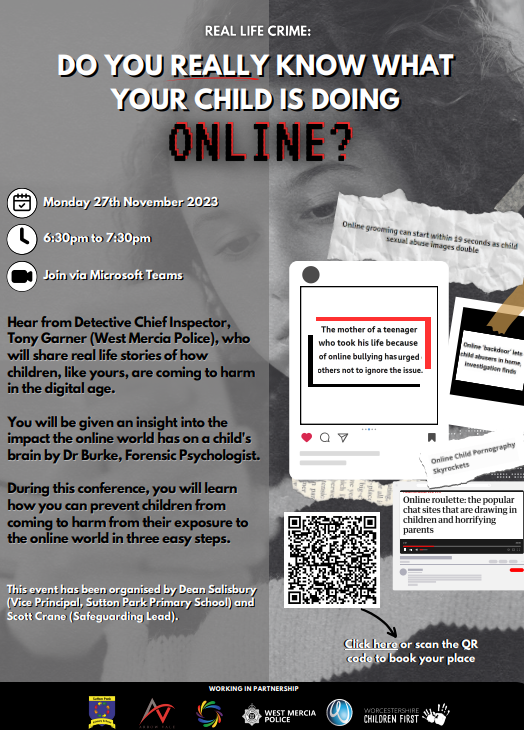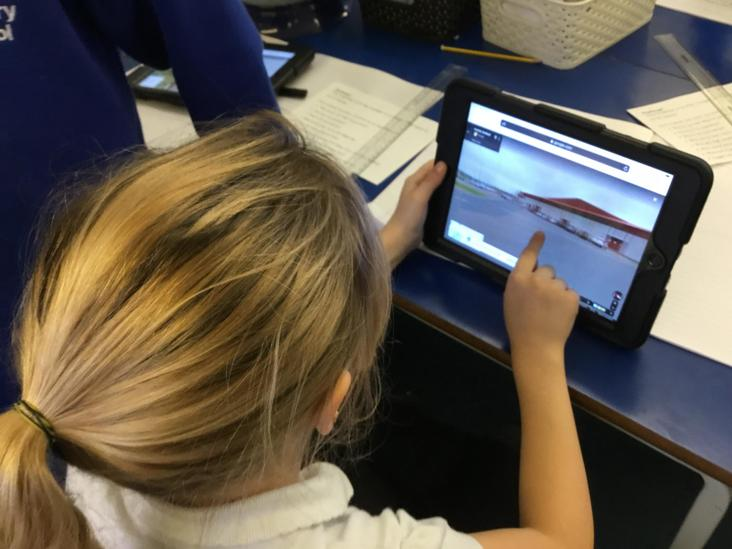Online Safety and Digital Leaders
Online Safety At Comberton
We consider the safety of the children of paramount importance. In a modern world, this includes ensuring they are safe on the internet and with the technology they use. The internet is a wonderful resource that we all make use of, however it can be a dangerous place to be. In school we educate the children, throughout their time here, about what those dangers are and how they can protect themselves from them. They develop the skills and knowledge that they need to have positive and safe experiences when using technology.
The breadth of issues classified within online safety is considerable, but they can be categorised into four areas of risk:
- Content: Being exposed to illegal, inappropriate or harmful material, e.g. pornography, fake news, self-harm and suicide, and discriminatory or extremist views.
- Contact: Being subjected to harmful online interaction with other users, e.g. peer pressure, commercial advertising, and adults posing as children or young adults with the intention to groom or exploit children.
- Conduct: Personal online behaviour that increases the likelihood of, or causes, harm, e.g. sending and receiving explicit messages, and cyberbullying.
- Commerce: Risks such as online gambling, inappropriate advertising, phishing and/or financial scams.
Filtering and Monitoring Systems
We use 'smoothwall' which filters what the children are able to see and do whilst using the internet in school, ensuring appropriate restrictions are in place.
We use a software system called SENSO to monitor children and staff's activity on the ipads, laptops and desktops in school. This is monitored by Mrs Frost (Headteacher and DSL) and Mrs Phillips (Deputy Head and DDSL) Any alerts to inappropriate activity are followed up on immediately.
The children know what systems are in place to keep them safe, however also understand that sometimes there may still be content, contact or conduct that makes them feel uncomfortable. We regularly reinforce the importance of reporting to a responsible adult in these circumstances.
Acceptable Use Agreements
Each year, in consultation with the online safety lead and digital leaders, we review our acceptable use agreements for staff, volunteers and pupils to ensure that everyone using technology at Comberton is committed to doing so safely and sensibly. Staff and pupils sign up to these annually and teachers spend time ensuring that the children fully understand the expectations of them when working online.
Online Safety Conference for Parents 27.11.23

- Parental Controls Get advice on setting up parental controls to help keep your child safe online.
Digital Leaders
We have established Digital Leaders at Comberton Primary School, consisting of pupils and staff. We have representatives from each Phase 2 class, whose job it is to keep the rest of the school informed and up to date when it comes to Online Safety. They are spokespeople for the pupils in their classes and share ideas and concerns in regular meetings. Digital Leaders can also offer technical support and help in computing lessons.
Safer Internet Day 2024
Each year, we celebrate Safer Internet Day to develop our Digital Literacy. This year, the theme was: Inspiring change? Making a difference, managing influence and navigating change online.
Created in consultation with young people across the UK, this year's Safer Internet Day focused on change online. This included covering:
- Young people’s perspective on new and emerging technology
- Using the internet to make change for the better
- The changes young people want to see online
- The things that can influence and change the way young people think, feel and act online and offline
We will continue our discussions about how to seek support if there is something that the children feel upset or worried about online. We will be helping children to develop the skills that they need to have conversations about their use of technology. Whether this be sharing what they enjoy and use online, any concerns that they have or discussing their vision for the future online.
All children, from Reception to Year 6 have thought about how they can play their part in building a better internet.
For more information and support on how to stay safe, take a look at the website below, which provides advice for parents and carers. http://www.saferinternet.org.uk/
Safer Internet Day 2023 - Sharing Your Online Experience: Primary Schools
Hear from primary schools about how they are getting involved in the Safer Internet Day 2023 theme 'Want to Talk About It? Sharing Your Online Experience https://saferinternet.org.uk/safer-internet-day/safer-internet-day-2023
Hanni and the Magic Window
A reading of Hanni and the Magic Window by the author, Amy Lockwood. This has been used across school as part of our learning for Safer Internet Day.
Helping at Home
Online Resilience tool - The Online Resilience Tool provides a practical way to assess young people’s online behaviour and help them make decisions about whether that behaviour represents risk of harm.
https://www.headstartkernow.org.uk/digital-resilience
We strongly recommend that you consider how safe the internet environment is for your children at home. Take a look at the ThinkUKnow website by using the link below. They have some fabulous games, videos and information about staying safe online that may help you protect your children and be aware of the risks.
If you see something or become aware of an online danger, you can report it to CEOP (Child Exploitation & Online Protection Centre) who will investigate the concern.
https://ceop.police.uk/safety-centre/
Another useful site is PACE which helps parents across the UK understand what is happening to their child and how parents are the prime agents in helping their child exit exploitative relationships.: https://paceuk.info/for-parents/
- Digital Parenting How parents can support children's wellbeing in a digital world
We are also aware that many children of primary school age have access to mobile internet technology such as smart phones and tablets, which they can use to access social networking sites such as Whatsapp, Instagram, Snapchat and YouTube. The minimum age to have an account on these sites is 13. If you would like any more information on this, we have included parents' guides below to these sites.
We have also included links to a number of mobile operator's sites that have sections of their website dedicated to online safety.
Guides for Parents
- Ask the awkward - introduction
- Ask the awkward - help sheet
- Social media letter for parents
- Instagram Parent Guide
- Snapchat Parent Guide
- Amazon Alexa Parent Guide
- Amongus Parent Guide
- App Parent Guide
- Facebook Parent Guide
- Fortnite Parent Guide
- Gaming,streamers,influencers Parent Guide
- Microsoft TEAMs Parent Guide
- Minecraft Parent Guide
- Netflix Parent Guide
- Online avatars Parent Guide
- Roblox Parent Guide
- Squid game Parent Guide
- Tiktok Parent Guide
- Whatsapp Parent Guide
- Youtube Parent Guide
- Zoom Parent Guide
- Report Harmful Content Click the link to report and remove any harmful content you are worried that your child might be accessing online
- Digital Resilience Tool This Digital Resilience Tool is a practical way for professionals to assess young people's online behaviour and help them make decisions about whether that behaviour represents risk of harm.
- Childnet Online Safety advice Click the link to find out how to protect children in the digital world, how to report harmful content and to develop skills for healthy screen time.
- NSPCC
- EE - Staying Safe Online
- Kidsmart

